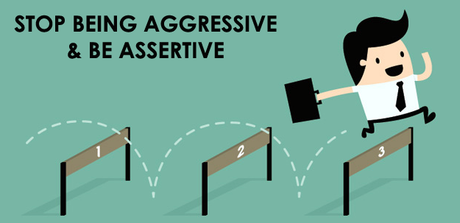
Author: Antony Xavier
I am sure you would have come across many such incidents in real life. There was this person called Mr. Sam who joined the organization through Campus Placement; he was very young and energetic; since he was fresh out of the college he was able to impress many people in the organization in a very short period and was appreciated by many in the organization for his energy, innovation, performance and positive attitude. He started growing fast in this organization and was promoted as a Zonal Head in a very short notice and became the youngest Zonal Head in the Organization and started reporting directly to the CEO. This promotion came as a surprise to him and he was very happy. For the first few months being a Zonal Head he was responsible for lots of activities in the Zone which involves less of decision making and more of Implementation like attending meetings, sending reports, Delegate work, manage people, Make people agree to his decisions and so on...It was more of an Executive role. As month goes he started getting nervous, since he was not actually prepared for this promotion like managing teams. His behavior started changing slowly he became aggressive and started showing his supremacy. Since he was very aggressive he started getting into conflicts with everybody including his subordinate and peers. He became rude, aggressive in his stance and used hard languages in the meetings. People waited and one day came together to complain against him to the CEO for his behavior.
Later the CEO called him in private to discuss about the issue. He asked him "Are you aware of the complaint that people had given against you". He Said, Yes Sir but is it wrong to be aggressive, I wanted everybody to perform and contribute to the growth of the company and I just did my job and I am very passionate about it. The CEO told him your intention is correct but the approach is different. My dear Sam, I know about you and I am the one who placed you here so it is my responsibility to guide you better. You have reached here because of your hard work and ability to do the job. But you should learn the difference between Being Aggressive and Being Assertive and I don't want you to ruin your career. My suggestion to you is "Stop Being Aggressive and be Assertive".
Know the difference:
If you are a manager, then we don’t have to tell you that managers are often over-worked and under-appreciated. You have so many different hats to wear, and too many people to keep up with. Because of the pressure on your time and energy, it is easy to settle into a task-driven routine that limits the productivity of your team because it reduces your effectiveness as a leader. As a leader you can be aggressive or passive in your communication. Being Aggressive is good but it is rarely appreciated. It can be intimidating. A Passive communicator is soft and will not able to put forth his views strongly and often these people are deemed effective. Few people think assertiveness is aggression; others think they're being assertive, when in fact they're being rude or overbearing. Surveys show that skill in interpersonal communication tops the list for success - or failure - in any workplace, whether you own it, lead it, or work in it.
Being Assertiveness is about making a point without hurting other's feeling. Advantages of being Assertive are, it helps to strengthen the relationship, improves self-image, boosts self-confidence, helps managing stress easily and can clearly communicate one's vision and goals for success, improves self –esteem and earn others respect. People can often confuse aggressiveness with assertiveness, because both types of behavior involve standing up for one’s rights and expressing one’s needs. The main difference between the two communication styles is that individuals behaving assertively will express themselves in ways that respect the other person. They assume the best about people, respect themselves, and think “win-win” and try to compromise. In contrast, individuals behaving aggressively will tend to employ tactics that are disrespectful, manipulative, demeaning, or abusive. They make negative assumptions about the motives of others and think in retaliatory terms, or they don’t think of the other person’s point of view at all. They win at the expense of others, and create unnecessary conflict The CEO later sent him for a specialized training program to learn and practice the art and science of Assertive Leadership Skills. Mr. Sam took the effort to change and corrected himself and lived happily ever after. Click Here for the latest articles by the Author.

